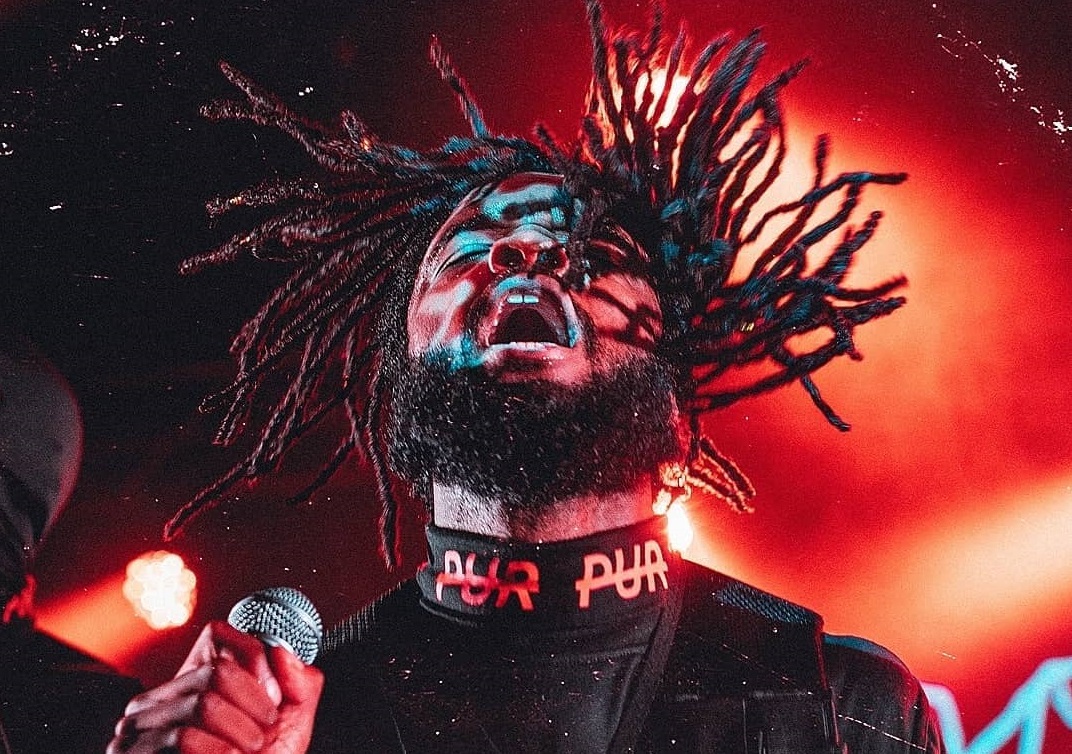Born in Ghana before moving to Canberra as a child, the identity of rapper Genesis Owusu was bound to be shaped by politics.
While slick rhymes saturated in groove are at the helm of his sound, the intent behind his work runs much deeper.
Owusu was drawn to rap through an admiration for poetry after realising his favourite artists Andre 3000, Kendrick Lamar and MF Doom are no less rightful of the title ‘poet’ than Maya Angelou and Gil Scott-Heron, whose art had initially lured him towards the craft.
“I started poetry first and then I realised that nobody wants to go to poetry gigs anymore, so I had to put a beat behind that,” says Owusu.
While it wasn’t necessarily his prerogative to use music as a means of voicing his opinions on social issues, the mutuality of Owusu’s sense of self and his perspective on the world around him meant it was inevitable that politics would permeate his music.
“Beat ‘em down and discredit the culture as that black shit/Pick it back up for yourself, see credits and detach it/Now you so intrigued and you wear it as the fashion” he spits in his latest single ‘Wit’ Da Team’, born through disdain for the cultural appropriation he witnesses each day.
“As a black person in a Western society, your life is inherently political from the get go. I don’t really know how to write about anything else,” he says. “I just talk about my life and what I experience and [cultural appropriation] came up a lot, so naturally it will come up in song.
“I had to talk about it but I had to talk about it in a way that was super funky and groovy so people didn’t get their pitchforks out.”
While Owusu half-jokes about padding the potency of his lyrics to keep the pitchforks at bay, he feels the shift rippling through the Australian hip hop scene which has not only created space for a variety of voices, but rejects the archetypal objectification of women as “bitches and hoes” that goes hand in hand with the genre.
It was the latter which led him to question the gender roles embedded into the fabric of our collective being through verse in his 2018 single ‘Awomen, Amen’.
“As a rapper, I never used to hear those kinds of messages [of anti-sexism] in rap music and I love rap music with all my heart, but it was something that always bothered me,” he says. “When I think about those kinds of issues of sexism, it runs very parallel to racism in the fact that it’s so deep ceded and interwoven into our society.”
Although his standpoints on the issues which comprise his lyrics are blatant, Owusu has no intention of shoving his ideals down anyone’s throat and hopes his audience reflect on his words, rather than accepting them as dogma.
“I believe that, to an extent, people are who they are and they’ll care about what they care about. I want to put things out there and leave it to people’s interpretation,” he says. “With that in mind, I like to throw out topics and issues and of course I’ll come at it from my perspective, but I’d like to leave it in a place where people can gather their own meaning from it.”
Last year saw Owusu complete a Bachelor of Journalism, a seemingly unnecessary backup plan in case his music career didn’t pan out, leaving him free to focus on his craft moving forward.
Despite having toured expansively and making waves with the release of Cardrive EP in 2017 and each subsequent single, Owusu is yet to release his debut album. He is coy when broaching the subject of an album, admitting that he can’t say too much.
“I might be working on a little somethin’, somethin’,” he says simply, with an audible grin.
Genesis Owusu performs at Brunswick Mechanics Institute as part of Brunswick Music Festival on Thursday March 7. Grab your tickets via the festival website.

